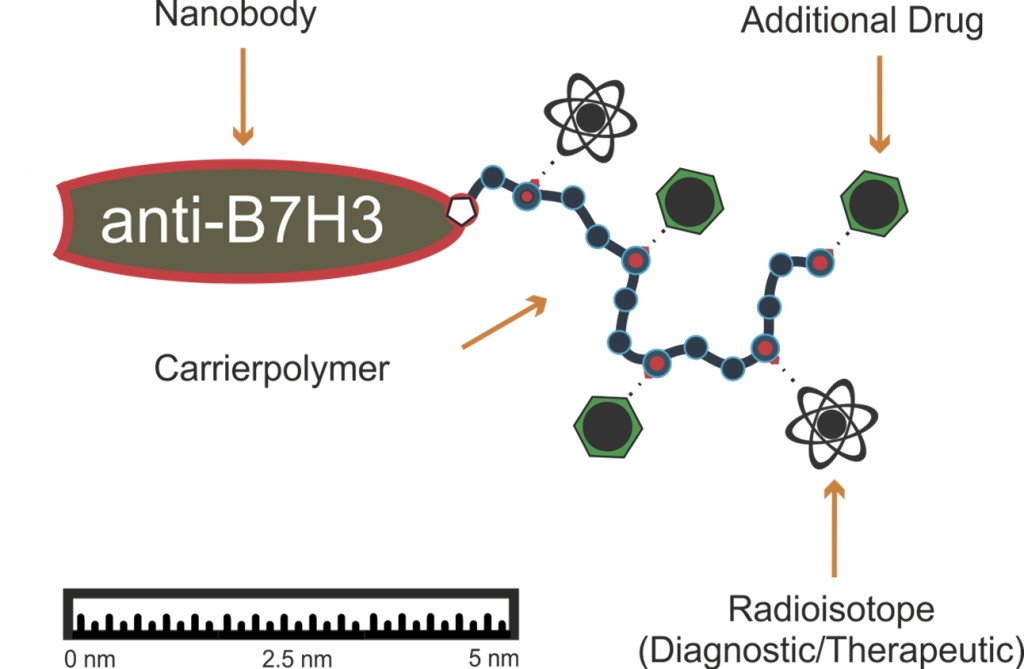Theragnostic Nanobody-Polymer Conjugates

Conventional tumour chemotherapy or radiotherapy are efficient in eradicating tumour cells but often lack target cell specificity, resulting in significant side effects. Theragnostics are modalities which may be used for both tumour diagnosis and treatment, thereby facilitating improved disease management and reducing risks and costs of cancer therapy.
B7H3 is a transmembrane protein that acts as a suppressor of T-cell activation and proliferation as well as a potential checkpoint inhibitor ligand. The protein is overexpressed in different tumours, e.g. non-small cell lung cancer and prostate cancer. B7H3 can be targeted using nanobodies, which are characterized by low molecular weight, high stability, low immunogenicity, excellent affinity and specificity and high solubility. Therefore, nanobodies represent ideal targeting moieties for the delivery of tracers and toxic payloads to tumour sites.
The task of the BPT as part of this project is the identification and production of a nanobody efficiently targeting B7H3 and the subsequent development of nanobody-polymer conjugates. The polymers allow the attachment of diagnostic tracers such as radionuclides and/or therapeutic agents such as cytotoxic drugs. By employing suitable proprietary polymer carriers, the blood half-life of the conjugate may be tailored to diagnostic or therapeutic requirements. In addition, off-target effects could be reduced and penetration of the blood-brain barrier may be achieved.
The project is led by CIS Biopharma in collaboration with FHNW, the Paul Scherrer Institute (PSI) and the Kinderspital Zürich.